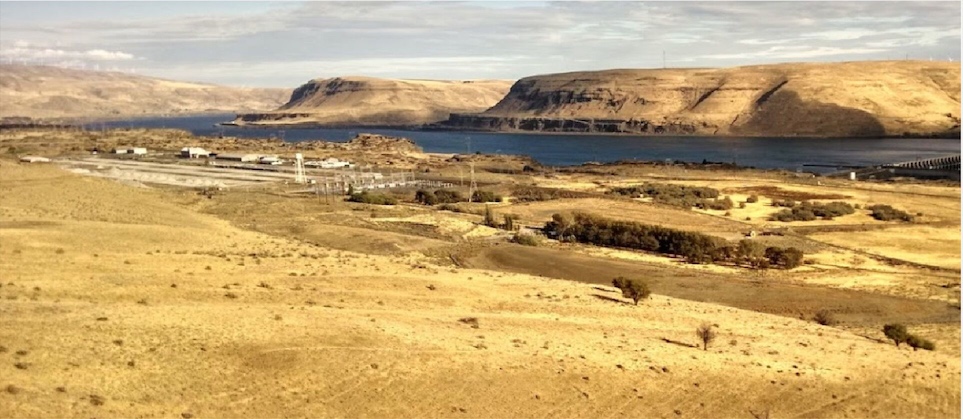forum
library
tutorial
contact

Washington Clean-Energy Project Seen
as Threat to Tribal Resources
by Don Jenkins
Capital Press, December 23, 2022
|
the film forum library tutorial contact |

|
Washington Clean-Energy Project Seen
by Don Jenkins
|
 Tribes adamantly oppose a pumped-storage hydro project in south-central Washington that otherwise got passing marks in a new report by the Washington Department of Ecology.
Tribes adamantly oppose a pumped-storage hydro project in south-central Washington that otherwise got passing marks in a new report by the Washington Department of Ecology.
The Goldendale Energy Storage Project along the Columbia River in Klickitat County would not significantly harm wildlife, water quality or aquatic life, according to the final environmental impact statement, which was released Dec. 21.
The 681-acre site was occupied by an aluminum plant until 2003. The project would buy water from a public utility district that already has a water right.
The development, however, would block, disturb or destroy hunting, foraging and spiritual sites that the Yakama, Warm Springs, Umatilla and Nez Perce tribes have used for longer than anyone can remember, the EIS reports.
Rye Development, a Boston company planning the $2.5 billion project for the owner, Denmark investment firm Copenhagen Infrastructure Partners, has suggested ways to minimize damage.
"The tribes have indicated that this is not sufficient," according to the EIS, which calls the adverse impacts to tribal resources "significant and unavoidable."
This coming year will be critical for the project, Rye Development Vice President Erik Steimle said in an email. The company is committed to protecting cultural, heritage and botanical sites, he said.
"That's why we hired tribal consultants from affected tribes and proposed more than two dozen mitigation measures," he said.
The Goldendale project would be Washington's first large pumped-storage power plant. Project proponents say it would supply on-demand energy to back up wind and solar power.
Rye proposes to dig a reservoir on a plateau overlooking the Columbia River 8 miles southeast of Goldendale and fill it once with river water.
When released, the water would rush down a tunnel for thousands of feet and flow through an underground powerhouse to generate electricity.
The water would resurface and empty into a lower reservoir near the river. The water would be pumped back to the upper reservoir. The system would use more energy than it would make, but reinforce the electric grid to meet peak demands, according to proponents.
Such projects are vital to achieving the state's clean-energy goals, Gov. Jay Inslee said this month.
"It's absolutely imperative to find some way to store energy so that when the sun shines we can store that energy for days that are cloudy," he said.
Rye hopes to start construction in 2025 and have the system working by 2030. The Federal Energy Regulatory Commission must license the project, a separate process that's underway.
According to Ecology's EIS, the project will need eight federal permits and 14 state permits. Agencies will need to consider treaty and other tribal rights, according to Ecology.
The Yakama Nation ceded the land in 1855, but retained hunting, fishing and gathering rights.
Archeological sites could also be at risk, according to the state Department of Archaeology and Historic Preservation. Details about the sites were redacted in the EIS.
In comments submitted to Ecology, the Yakama Nation called the area sacred and that "development would destroy the lives of our tribal members."
Efforts to obtain comment from the tribe Dec. 22 were unsuccessful.
Copenhagen bought the Goldendale project in 2020. At the same time, Copenhagen acquired the Swan Lake pumped-storage project in Klamath County, Ore. Rye has continued to develop both projects.
The FERC licensed Swan Lake in 2019. Rye hopes to begin construction next year. It will be the first pump-storage project in Oregon.
FERC has licensed 24 pumped-storage projects that are operating or under construction in the U.S. Four are in California, the most of any state.
FERC has not licensed any pumped-storage projects in Idaho. PacifiCorp has applied for a license for the 1,800-megawatt Dry Canyon project in southeast Idaho.
learn more on topics covered in the film
see the video
read the script
learn the songs
discussion forum
